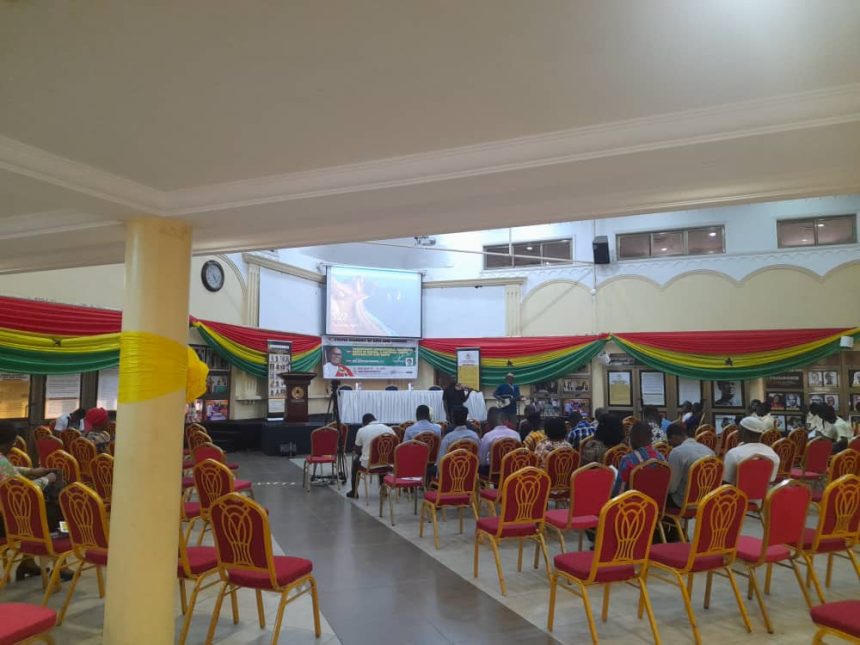The Ghana Academy of Arts and Sciences hosted its 2024 inaugural lecture at the Kwame Nkrumah Auditorium, on 11th April, 2024 on the topic ‘Prioritizing Antimicrobial Resistance Needs In Ghana: A National Choice Between Life and Death.’
Guest speaker for the lecture was in the person of Professor of Bacteriology and Global Health, at the University of Ghana Medical School, Prof. Eric Sampane-Donkor.
Speaking on the historical aspect and the emergence of antimicrobial resistance, Prof. Donkor also discussed the global burden of the antimicrobial system and the effect it has on the health and lives of people, increasing the death rate.
‘‘…the discovery of antibiotics seemed to have slowed down, and you could also see the emergence of antibiotic resistance. Studies have shown that almost five million people died of antimicrobial resistance, and 2019 was also when we had COVID-19, so with that to 2020, the number of people who died from COVID was 1.8 million, so if we describe COVID as a pandemic then you can also say that, antimicrobial resistance is also a pandemic.’’
In the lecture, Prof. Donkor also discussed the situation of antimicrobial resistance in Ghana, the ongoing interventions against the threat and the possible solutions to help fight and manage the menace.
‘’In Ghana and many other African countries, it is easy to get antibiotics over the counter, the less people consume more of antibiotics, that becomes a major driver to antimicrobial resistance. We can also see substandard antibiotics, which is common in most places in the developing world. In a developed world, hardly would you sell this but here it is quite common. Many people because of profit would want to trade in substandard antibiotics. There is also international travel, which is causing the antibiotic blood resistance pathogen from one place to another.”
“Instead of moving up like other antibiotics, resistance seem to have dropped significantly which is interesting, because some countries, some of the drugs have stopped being used. Now the way forward is a crucial action plan which solely addresses the needs of antimicrobial resistance so all we have to do is to try and implement that, so it takes all of us to be able to strengthen and develop the crucial action plan’’
The Chairperson, for the lecture, Emerita Prof. Isabella Akyinbah Quakyi, gave her overview on the lecture presented, and also expressed gratitude for the Speaker’s dedication to fight against the threat. She also praised him for bringing awareness and educating many on antimicrobial resistance and the possible ways to fight against the disease.
Antimicrobial resistance (AMR) is considered, by the World Health Organization(WHO), as one of the top ten global public health threats in recent times. According to WHO, AMR occurs when bacteria, fungi and parasites change over time and no longer respond to medicines, making infections harder to treat and increasing the risk of disease spread, severe illness and death.
AMR causes about seven hundred thousand deaths per year, and it is estimated that by 2050, it will result to about ten million deaths every year, and a reduction of 2-3.5% in gross domestic product (GDP), with an overall cost of US $ 100 trillion, if the AMR threat is not properly addressed.
–
Story by: Joycelyn Makafui Agbo | univers.ug.edu.gh




